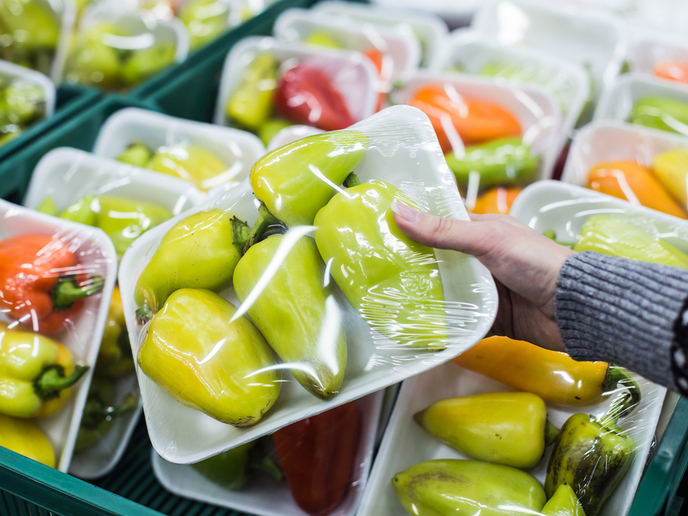Nanotech and essential oils for safer packaged food
About one third of the food produced worldwide each year is lost or wasted. When we waste food, it’s not only us – the consumers – who lose money. Wasted food also implies a waste of the land, energy, water and labour needed to produce it. More importantly, this harms the environment. The EU-funded project NanoPack is proposing a solution that could help tackle one aspect of this problem: food waste through food spoilage. The NanoPack team is basing its solution on innovative active food packaging systems. Nanotechnology used in food packaging: survey findings Active packaging refers to packaging whose function goes beyond just passively containing the product. This packaging absorbs or releases substances in order to improve the freshness of the packaged food or to extend its shelf life. To determine how people view nanotechnology and its potential benefits for packaged food, project partners conducted research on how accepting consumers and retailers are of new active food packaging technologies. Ten focus groups and in-depth interviews conducted with consumers and retail managers in China, Denmark, Ireland, Italy and Spain yielded interesting results. They found that consumers are more and more willing to use nanotechnology-based solutions in food packaging. However, they’re concerned about the active nature of this technology and how the inclusion of essential oils – whose purpose is to prevent or slow spoilage – may contaminate or alter foods. “The benefits of active packaging solutions are not always aligned in consumer minds,” said Associate Professor Polymeros Chrysochou of project partner Aarhus University of Denmark in a news item published on the EPPM Magazine website. “[F]or example, extending the shelf-life of a product and keeping its freshness seem to be a contradiction... Freshness is a rather vague promised benefit and people have different interpretations of it. They may perceive it in terms of the time passed from the production, where a shorter time equates a fresher food product. This means that consumers do not see a product with an extended shelf life as being necessarily fresh, since a longer time has passed since production.” Each year, tens of thousands of Europeans fall ill from eating contaminated or spoiled food. Begun in 2017, the 4-year project is aiming to improve food safety by inhibiting the growth of food-borne bacteria that will help to prevent illnesses caused by contaminated food and food spoilage. The materials that make this possible are called halloysite nanotubes, or HNTs. These naturally occurring mineral nanotubes are dispersed into plastic packaging films and fixed there so that they don’t come into contact with the food. HNTs contain natural essential oils extracted from plants like oregano and thyme. The oils are slowly released as a vapour from the films into the packaging headspace. Thanks to their antimicrobial properties, they slow the growth of the bacteria or mould that spoils food. The NanoPack packaging films currently being developed are expected to extend the shelf life of perishables by up to 25 %. NanoPack (Pilot line production of functional polymer nanocomposites from natural halloysite nanotubes: demonstrating controlled release of active antimicrobials in food packaging applications.) is currently in the process of conducting pilot tests. The tests will involve all packaging production stages on existing pilot production lines to determine if NanoPack products are commercially and industrially viable. For more information, please see: NanoPack project website
Countries
Italy



